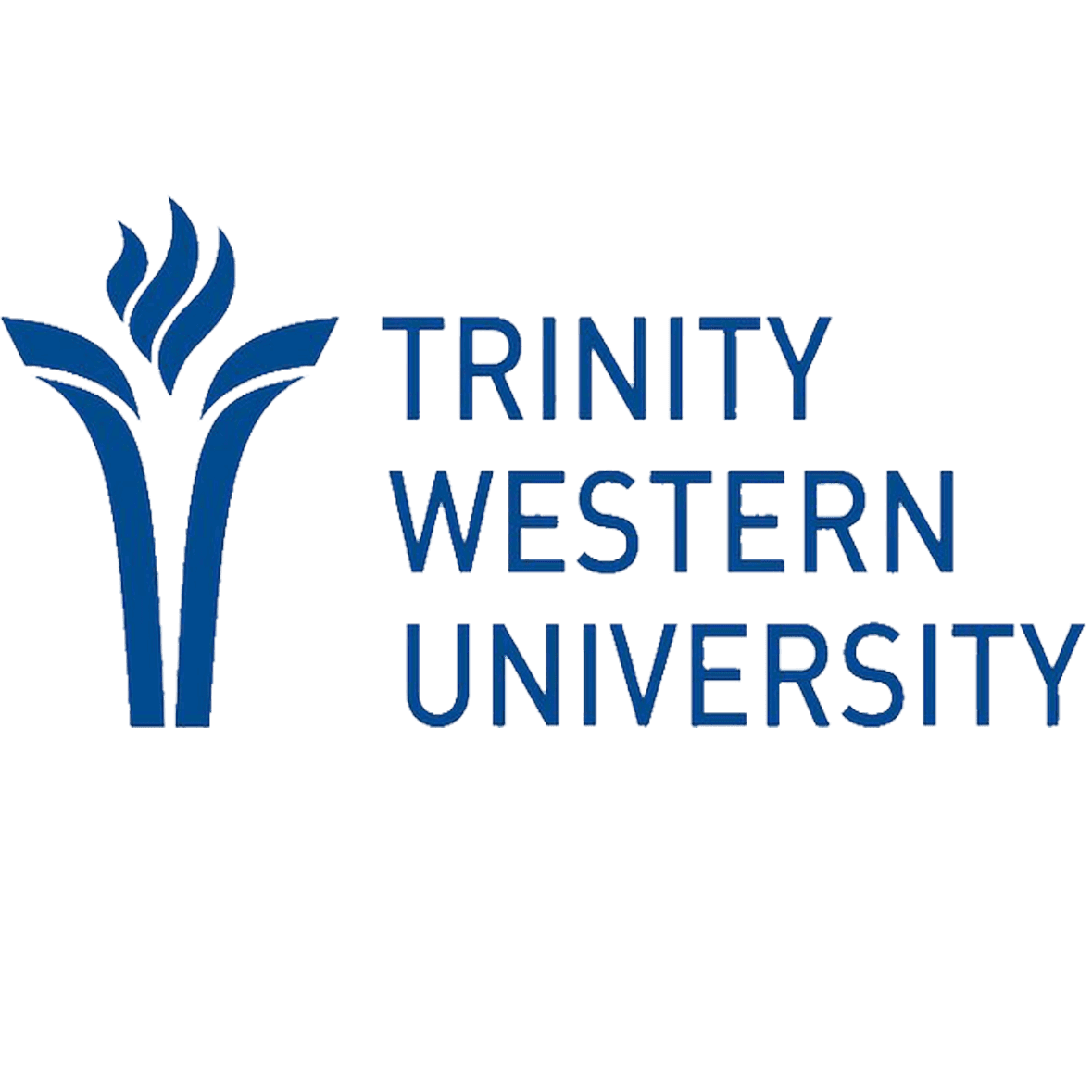Intake in New Zealand 2023: Timeline, Courses, Universities Requirements
6 mins read 2282 Views
By Prabhadri Suman|Updated On - 2023-07-19 06:04:33
Plan your studies in New Zealand with our complete guide on intake timelines, courses, and universities requirements for the year 2023.

Topics Covered:
- Intakes Offered in New Zealand
- Timeline for January 2023 Intake in New Zealand
- Universities Accepting January Intakes in New Zealand
- Timeline for July 2023 Intake in New Zealand
- Universities Accepting July Intakes in New Zealand
- Documents Required for Intake in New Zealand 2023
- Top Courses to Study in New Zealand
- Scholarships to Support your Education in New Zealand
- Conclusion
Are you considering studying in New Zealand in 2023? Look no further! In this comprehensive guide, we will provide you with all the essential information you need to know about the intakes, timelines, courses, universities, and requirements for studying in New Zealand . From the January and July intakes to the application process and visa requirements, we've got you covered. So, let's dive in and explore the opportunities that await you in the land of Kiwis!
Intakes Offered in New Zealand
New Zealand universities offer two major intakes for international students: the January intake and the July intake. These intakes correspond to the two semesters in the academic year and provide a wide range of undergraduate and postgraduate programs to choose from. Additionally, there are rolling intakes throughout the year, which offer vocational and short-term courses. Let's take a closer look at each intake:
January Intake
The January intake, also known as the January semester, starts at the beginning of the year and runs from February to June. This intake is an excellent opportunity for students who want to kickstart their academic journey early in the year. If you plan to apply for the January intake, it is advisable to start your application process in November to meet the application deadlines set by universities.
July Intake
The July intake, also referred to as the July semester, begins in the middle of the year and runs from July to November. This intake is highly popular among international students, as it offers a wide variety of undergraduate and postgraduate courses across top universities in New Zealand . To secure a spot in the July intake, make sure to submit your application by April to May, as the application deadline varies depending on the university and the program you are applying for.
Rolling Intakes
Apart from the January and July intakes, there are rolling intakes throughout the year in New Zealand. These intakes, which occur in February, March, April, May, and July, primarily offer vocational and short-term courses. While the number of courses available during these intakes may be limited, they provide an excellent opportunity for students looking to enhance specific skills or pursue a shorter duration program.
| Semester | Session | Admission Intake Deadline |
| Semester 1 | February-June | January -February |
| Semester 2 | July -November | July |
| Rolling Intakes | Anytime in the year | No Deadline |
Timeline for January 2023 Intake in New Zealand
If you're considering applying for the January 2023 intake in New Zealand, it's crucial to familiarize yourself with the timeline to ensure a smooth application process. Here's a step-by-step breakdown of the activities you need to complete:
| Application Timeline | Activities |
| April 2023 -May 2023 | Shortlist universities as well as courses that match your preferences. |
| June 2023 -November 2023 | Take standardized tests such as IELTS , TOEFL , GMAT , or GRE |
| August 2023 - September 2023 | Collect all the documentation required by the university you wish to apply to, then upload it as instructed. |
| October 2023 - November 2023 | Accept the email admission offer you received from the school and confirm your enrollment. |
| November 2023 - December 2023 | After getting an acceptance letter, apply for a student visa and explore scholarships available in New Zealand. |
| December 2023 - January 2024 | Collect all the necessary immigration documents and prepare for accommodation in New Zealand ahead of time. |
April - May 2023: Research and Shortlist Courses and Universities
During this period, dedicate your time to thorough research and shortlist the courses and universities that align with your preferences and academic goals. Consider factors such as program offerings, reputation, location, and eligibility criteria to make an informed decision.
June - November 2023: Prepare and Attempt Standardized Admission Tests
To gain admission to New Zealand universities, you may be required to take standardized admission tests such as IELTS, TOEFL, GMAT, or GRE. Use this time to prepare for these tests and aim for the minimum required scores set by your chosen universities.
August - September 2023: Gather Required Documents
As you progress with your application, gather all the necessary documents requested by the universities. These documents may include academic transcripts, English language proficiency test scores, standardized test scores (GMAT/GRE), statement of purpose (SOP), letters of recommendation (LORs), and a valid passport.
October - November 2023: Accept Admission Offer and Confirm Enrollment
Once you receive an admission offer from a university, carefully evaluate the terms and conditions before accepting it. After accepting the offer, confirm your enrollment by following the instructions provided by the university. This step is crucial to secure your place in the January 2023 intake.
November - December 2023: Apply for Student Visa and Scholarships
After accepting the admission offer, initiate the process of applying for a student visa. Familiarize yourself with the visa requirements and gather the necessary documents. Additionally, explore scholarship opportunities available in New Zealand and apply for any that align with your academic achievements and financial needs.
December 2023 - January 2024: Prepare for Departure
As the departure date approaches, make sure to gather all the required immigration documents, including your student visa. Arrange for accommodation in New Zealand and make any necessary travel arrangements. This is also an excellent time to familiarize yourself with the culture and lifestyle of New Zealand, ensuring a smooth transition to your new academic adventure.
Interested in studying abroad? Our Experts will evaluate your profile for FREE
Universities Accepting January Intakes in New Zealand
Check out the top New Zealand universities that accept students for January intakes.
| University | QS Global 2023 |
| University of Otago | 194 |
| University of Auckland | 258 |
| Auckland University of Technology | 451 |
| Lincoln University | 372 |
| Massey University | 284 |
| University of Waikato | 373 |
Timeline for July 2023 Intake in New Zealand
If the July 2023 intake suits your academic plans better, here is a timeline to guide you through the application process
| Application Timeline | Activities |
| August-December | Shortlist courses and universities as per your preference |
| December-February | Take standardized tests such as IELTS , TOEFL , GMAT or GRE |
| February-March | Gather all the required documents as per the university requirements and upload it. |
| March-April | Accept the email admission offer you received from the school and confirm your enrollment. |
| April-July | After getting the acceptance letter apply for students visa and explore for scholarships available in New Zealand |
| June-July | Collect all immigration documents and make arrangements for accommodation in New Zealand |
August - December 2023: Research and Shortlist Courses and Universities
Start your journey by researching and shortlisting the courses and universities that align with your interests and career goals. Consider factors such as program reputation, faculty expertise, campus facilities, and location to make an informed decision.
December 2023 - February 2024: Prepare for Standardized Tests
During this period, focus on preparing for standardized tests such as IELTS, TOEFL, GMAT, or GRE, depending on the requirements of your chosen universities. Aim for the minimum required scores to increase your chances of admission.
February - March 2024: Complete the Application Process
Complete the application forms for your selected universities, ensuring that all required documents are submitted accurately and on time. Pay attention to details such as personal essays (statement of purpose), letters of recommendation, and any additional documents specified by the universities.
March - April 2024: Accept Admission Offers and Prepare for Interviews
As universities evaluate your application, be prepared to accept admission offers promptly and confirm your enrollment. Some universities may require interviews as part of the selection process, so it's crucial to prepare adequately and showcase your passion and suitability for the program.
April - July 2024: Apply for Student Visa and Scholarships
Once you have secured admission, begin the student visa application process. Familiarize yourself with the visa requirements and gather the necessary documents. Additionally, explore scholarship opportunities in New Zealand and apply for any that match your qualifications and financial needs.
June - July 2024: Prepare for Departure
As your departure date approaches, make sure to gather all the required immigration documents and finalize your accommodation arrangements in New Zealand. Double-check your travel arrangements and ensure that you are fully prepared for the exciting journey ahead.
Universities Accepting July Intakes in New Zealand
Check out the top universities in New Zealand that accept students for July intakes.
| University | QS Global 2023 |
| University of Otago | 194 |
| University of Canterbury | 258 |
| Lincoln University | 372 |
| Auckland University of Technology | 451 |
| Eastern Institute of Technology | 533 |
| Unitec Institute of Technology | 422 |
| University of Auckland | 85 |
Documents Required for Intake in New Zealand 2023
To complete your application for intake in New Zealand, you will need to prepare a set of essential documents. While specific requirements may vary by program and university, here are some common documents you may be asked to submit:
- Academic Transcripts and Certificates: Provide official copies of your academic transcripts and certificates from previous educational institutions.
- English Language Proficiency Test Scores: Depending on the university's requirements, you may need to demonstrate your English language proficiency by submitting scores from tests such as IELTS, TOEFL, or PTE.
- Standardized Test Scores: If required, submit your scores from standardized tests such as GMAT or GRE, depending on the program you are applying to.
- Statement of Purpose (SOP): Write a compelling statement of purpose that highlights your academic and career goals and explains why you are interested in studying in New Zealand.
- Letters of Recommendation (LORs): Request letters of recommendation from professors, employers, or other individuals who can speak to your academic abilities and character.
- Valid Passport: Ensure that your passport is valid throughout your intended period of study in New Zealand.
- Curriculum Vitae (CV)/Resume: Prepare a comprehensive CV or resume that outlines your educational background, work experience, extracurricular activities, and any other relevant achievements.
- Proof of Sufficient Funds: Provide evidence of your ability to cover tuition fees, living expenses, and other costs associated with studying in New Zealand.
- Certificates for Extracurricular Activities: If you have participated in any extracurricular activities or achieved notable accomplishments, include relevant certificates or documentation to support your application.
Top Courses to Study in New Zealand
1. Computer Science and IT
Computer Science and IT courses are in high demand worldwide, and New Zealand is no exception. The country's universities maintain high academic standards and offer programs that delve into various aspects of the field. Some of the key areas covered in these courses include machine learning, cybersecurity, digital libraries, broadband communication, human-computer interaction, and software engineering. With the increasing digitalization of industries, having knowledge in computer science and IT is invaluable.
Top Universities to Pursue Computer Science and IT in New Zealand:
- University of Waikato
- University of Auckland
Average Tuition Fees: 4500 NZ$ - 53,065 NZ$
2. MBA
An MBA degree from a New Zealand university opens up a world of opportunities. Studying business in New Zealand allows students to gain the necessary skills to excel in management roles or even start their own businesses. The country offers globally recognized MBA programs that provide students with the knowledge and experience to thrive in the corporate world. The demand for business analysts is particularly high in New Zealand, making it an attractive destination for MBA students.
Top Universities to Pursue MBA in New Zealand:
- Massey University
- Auckland University of Technology
Average Tuition Fees: 51,000 NZ$ - 61,000 NZ$
3. Agriculture
New Zealand is renowned for its agricultural industry, and studying agriculture in the country provides students with hands-on experience and practical learning opportunities. Several universities in New Zealand rank among the top 100 for agriculture and forestry programs. These courses often involve frequent farm visits, case studies, and research centers to ensure students gain a comprehensive understanding of the field.
Top Universities to Pursue Agriculture in New Zealand:
- Lincoln University
- Massey University
Average Tuition Fees: 22,000 NZ$ - 42,000 NZ$
4. Psychology
With a growing focus on mental health and well-being, the field of psychology has experienced significant growth. Pursuing a psychology course in New Zealand can provide students with the knowledge and skills to make a difference in people's lives. The country offers top universities with renowned psychology programs that cover various subfields of psychology.
Top Universities to Pursue Psychology in New Zealand:
- University of Otago
- University of Auckland
Average Tuition Fees: 30,000 NZ$ - 44,000 NZ$
5. MBBS
Studying medicine in New Zealand offers global recognition and excellent career prospects. The University of Auckland, one of the top universities in the country, is ranked among the top 100 in the QS World University Rankings. Completing an MBBS degree in New Zealand provides students with practical exposure and research-oriented studies, giving them a competitive edge in the medical field.
Top Universities to Pursue MBBS in New Zealand:
- University of Otago
- Victoria University of Wellington
Average Tuition Fees: 5000 NZ$ - 1,02,000 NZ$
Scholarships to Support your Education in New Zealand
New Zealand offers a range of scholarships to support international students in pursuing their education. These scholarships can help alleviate the financial burden and make your study abroad experience more affordable. Here are some types of scholarships available in New Zealand:
- Government Scholarships: The New Zealand government offers various scholarships for international students, such as the New Zealand Scholarship, which covers tuition fees, living expenses, and other costs.
- Merit-Based Scholarships: Many universities and institutions in New Zealand offer merit-based scholarships to exceptional students who have demonstrated outstanding academic achievements.
- Scholarships for Women: Several organizations and institutions in New Zealand provide scholarships specifically for women pursuing higher education in various fields.
- Scholarships for Minorities: There are scholarships available to support students from minority backgrounds, ensuring equal access to quality education in New Zealand.
- Sports Scholarships: If you excel in sports, you may be eligible for sports scholarships, which provide financial support for athletes pursuing their education while representing their university.
To find out more about the available scholarships and their specific eligibility criteria, it is recommended to reach out to the universities or consult with trusted education consultants who specialize in study abroad opportunities.
Conclusion
Studying in New Zealand can be a life-changing experience, offering high-quality education, diverse program options, and a vibrant cultural environment. By understanding the intakes, timelines, courses, universities, and requirements, you can plan your application process effectively and increase your chances of securing admission. Remember to gather all the necessary documents, prepare for standardized tests, and explore scholarship opportunities to support your education financially. With careful planning and the right guidance, you can embark on an exciting educational journey in New Zealand. So, take the first step, and start turning your study abroad dream into a reality!
The Edmissions team is here to provide you with help throughout the college application process. Before you submit your application to your desired college or university, it is recommended that you get in touch with a Edmissions specialist by registering on the website edmissions.com .
To learn more about application processing, contact our Edmissions specialists at
[email protected]
.
For a quick overview related to study abroad,
click here
Latest Blog Posts
Trending Posts
Popular Colleges to Study Abroad
Blog FAQ's
Top Study Abroad Exams
Popular Universities to Study Abroad
- University of Waterloo
Waterloo
- University Canada West
Vancouver
- University of Windsor
Windsor
- Cape Breton University
Sydney
- Dalhusie University
Halifax
- Carleton University
Ottawa
- University of Ottawa
Ottawa
- University of Guelph
Guelph
- Explore more colleges in Canada
- University of New Haven
West Haven
- Kent State University
Kent
- Wright State University
Dayon
- San Jose State University
West Haven
- Clark University
Worcester
- Rowan University
Glassboro
- Golden Gate University
San Francisco
- Arkansas
San Francisco
- Explore more colleges in USA
- Coventry University
Coventry
- University of Birminghame
Birminghame
- De Montfort University
Leicester
- Cardiff University
Cardiff
- BPP University
London
- University of West London
London
- University of Nottingham
Nottingham
- University of Warwick
Coventry
- Explore more colleges in UK
- Auckland Institute Of Studies
Auckland
- Massey University - Auckland Campus
Albany
- Eastern Institute of Technology - Auckland Campus
Auckland
- NorthTec - Auckland Campus
Auckland
- Massey University - Manawatu Campus
Palmerston North
- University of West London
London
- Wellington Institute of Technology (WelTec) - Petone Campus
Lower Hutt
- Otago Polytechnic - Dunedin Campus
Dunedin
- Explore more colleges in New Zealand
- Chandigarh University
Mohali
- Parul University
Vadodara
- Sharda University
Greater Noida
- Jain University
Bangalore
- Bennett University
Greater Noida
- Lovely Professional University
Phagwara
- Chitkara University
Rajpura
- Brainware University
Kolkata
- Explore more colleges in India
- Abu Dhabi University
Abu Dhabi
- Gulf Medical University
Ajman
- New York University
Abu Dhabi
- Emirates Aviation University
Dubai
- Higher Colleges of Technology
Dubai
- British University in Dubai
Dubai
- Al Ghurair University
Dubai
- American University in the Emirates
Dubai
- Rochester Institute Of Technology Dubai
Dubai
- Emirates Academy of Hospitality Management
Dubai
- American University of Ras Al Khaimah
Ras Al Khaimah
- Explore more colleges in UAE
- Ras Al Khaimah Medical and Health Sciences University
Ras Al Khaimah
Search, Shortlist, Apply and get accepted! It’s that Simple to pursue your dream to Study abroad with Edmissions. Our team of experts provide you the right guidance that helps you to take admission in your dream college in countries like Canada, the USA, the UK
© 2021-2024 Edmissions - All rights reserved.
TALK TO OUR EXPERTS









